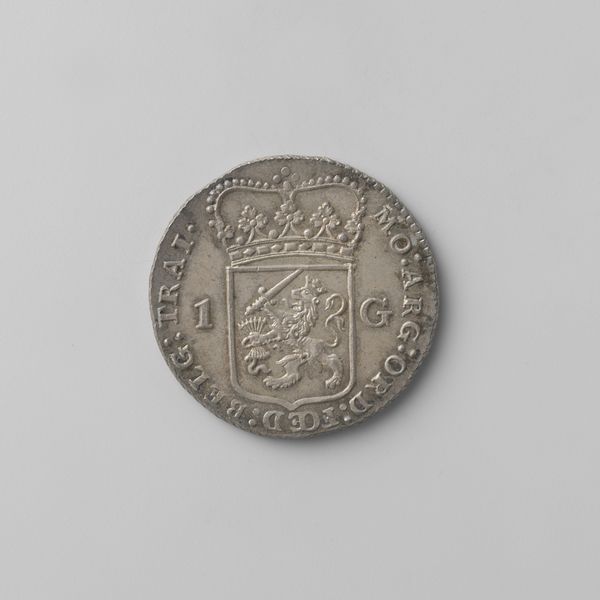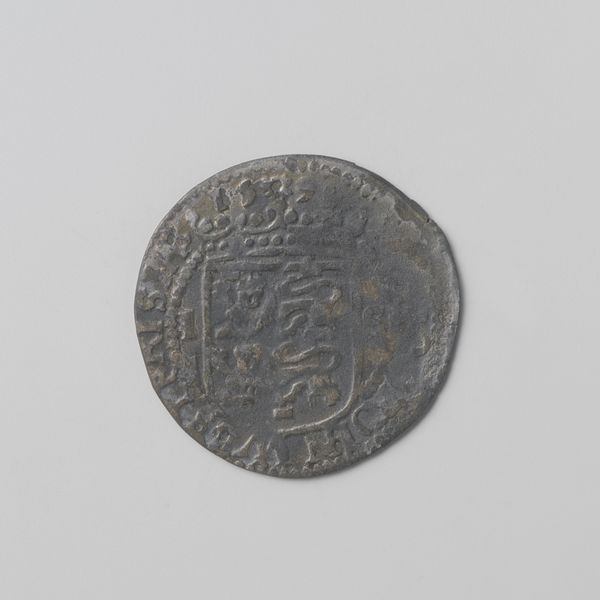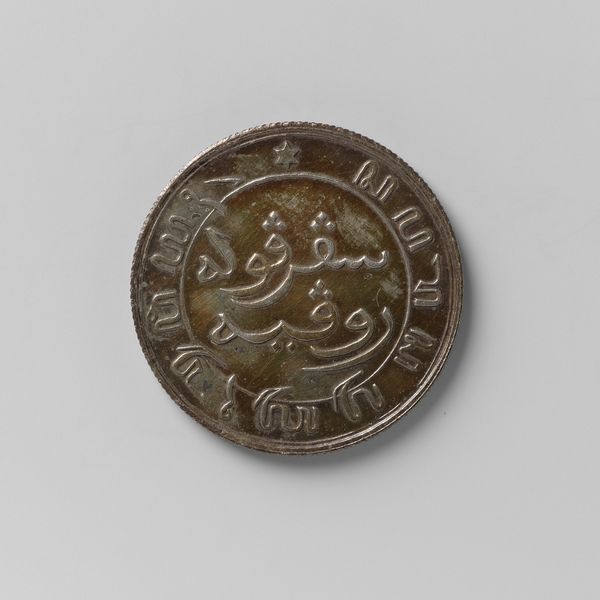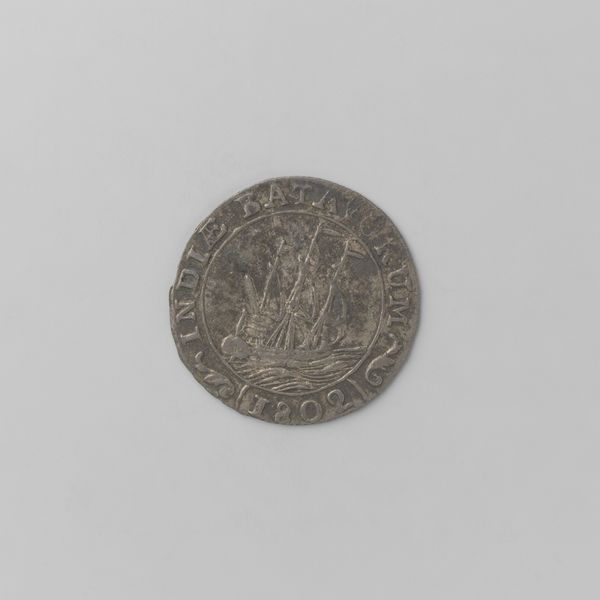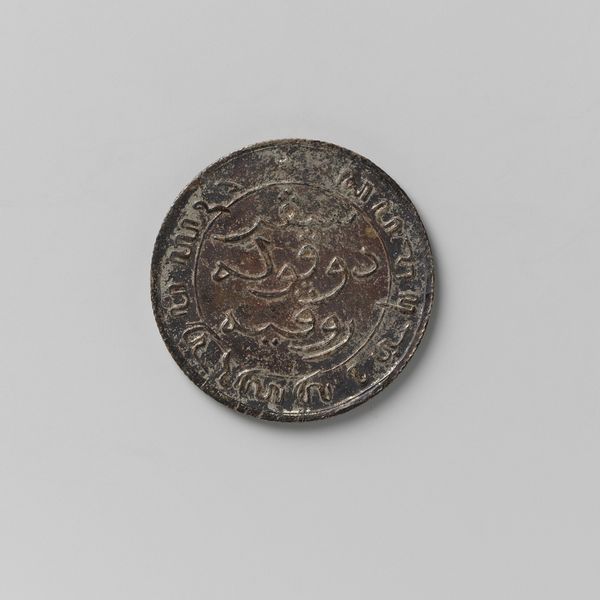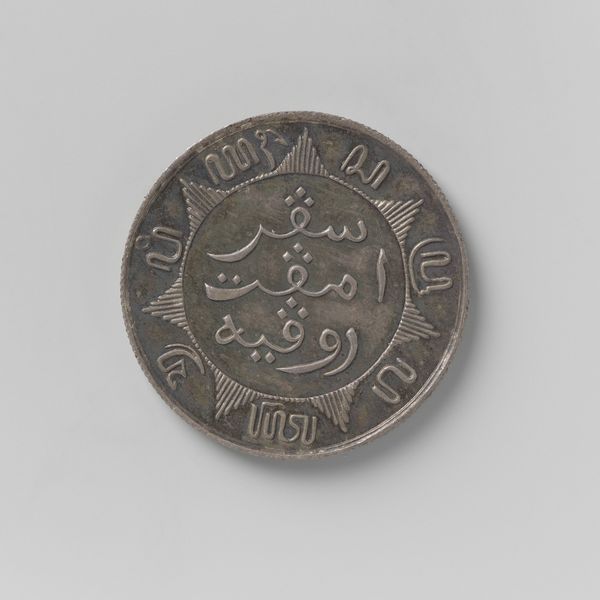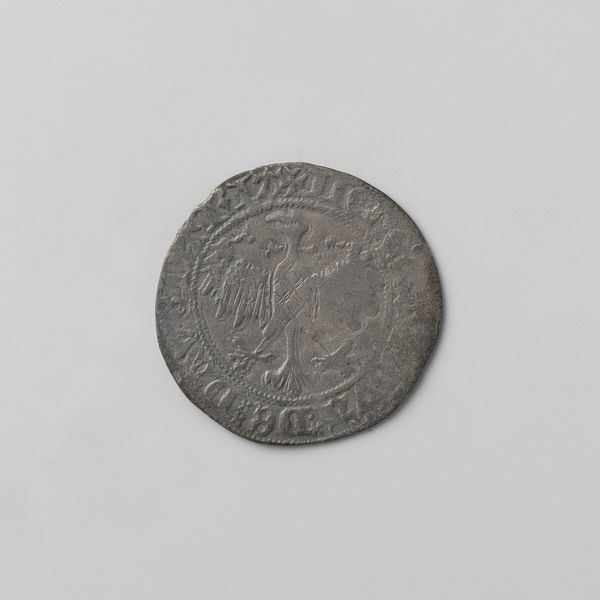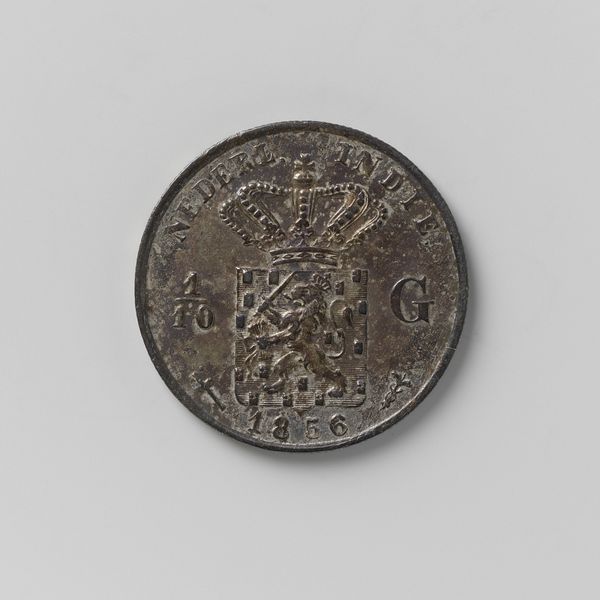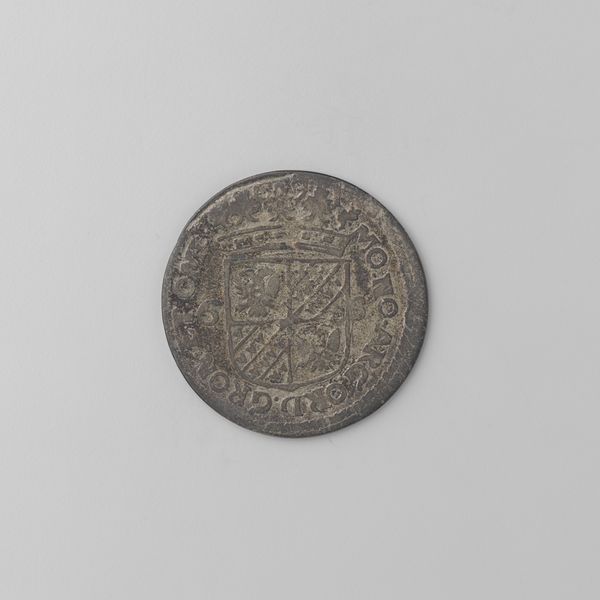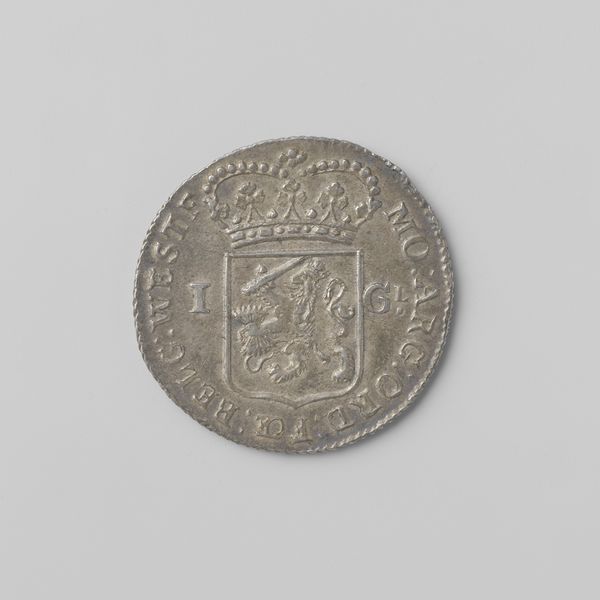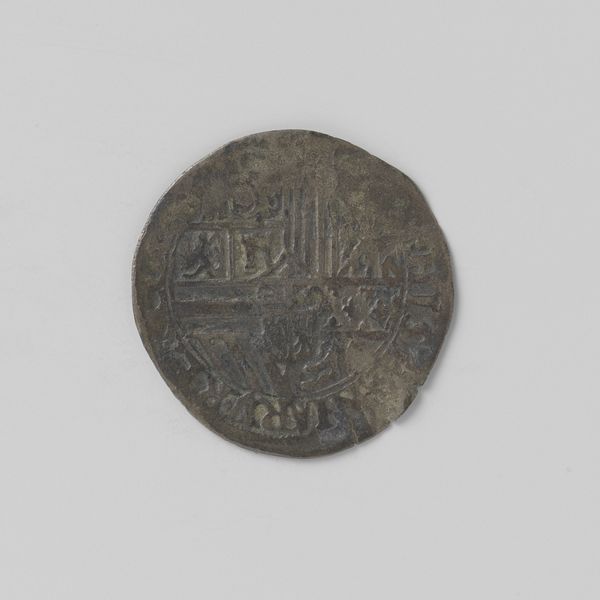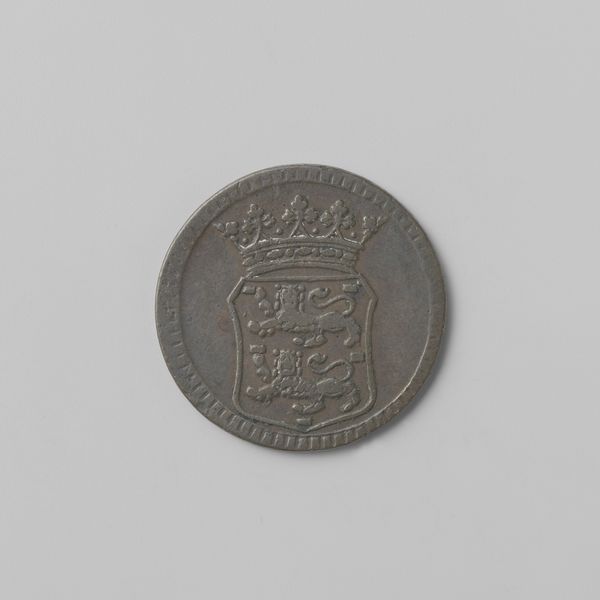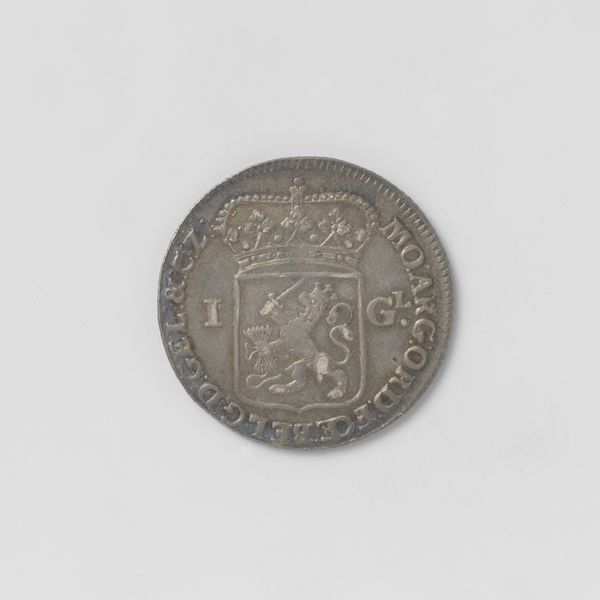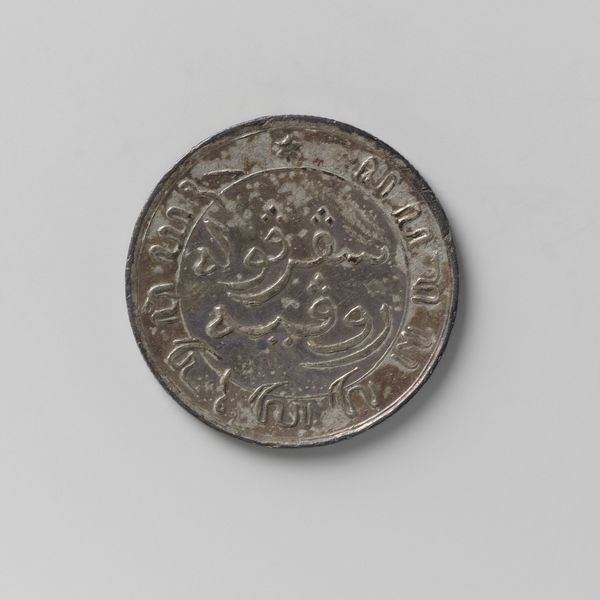
print, metal
#
dutch-golden-age
# print
#
metal
#
11_renaissance
#
geometric
#
history-painting
Dimensions: diameter 2.4 cm, weight 1.68 gr
Copyright: Rijks Museum: Open Domain
The Landschap West-Friesland produced this small coin, a Westfriese stuiver, in 1597. Its circular form, typical of coinage, is immediately apparent, yet the irregular edges suggest the manual processes involved in its creation. The visual field is divided into two primary zones: a central heraldic shield featuring rampant lions, and an encircling inscription. Note how the design elements are not merely decorative, but functional, serving as identifiers of value and authority. The stamped impression creates a tactile relief, transforming the metal surface into a medium of communication. Consider the coin not only as currency but as a structured sign, reflecting the socio-political landscape of its time through emblematic representation and textual declaration. The coin's very existence destabilizes the fixed values, engaging with new ways of thinking about economic power and representation. This structured interplay of heraldry and text embodies the dynamic intersection of commerce and governance in the late 16th century.
Comments
No comments
Be the first to comment and join the conversation on the ultimate creative platform.
